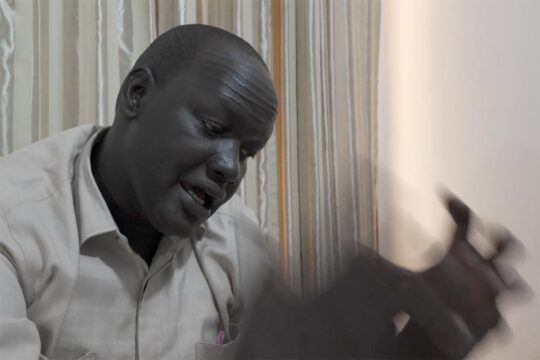African leaders on Monday approved a proposal to deploy a regional protection force to South Sudan with a more robust mandate than the UN peacekeeping mission currently there.
"The UN doesn't have the mandate to impose peace," African Union (AU) Peace and Security Commissioner Smail Chergui said at a summit in Kigali.
"They are there where there is peace to keep. African troops are ready to engage in very difficult situations. It is our responsibility," he added.
A shaky ceasefire has held in South Sudan for a week after four days of bloody clashes between forces loyal to President Salva Kiir and those supporting his rival Vice-President Riek Machar.
At least 300 people were killed, and tens of thousands fled their homes.
The violence raised fears of a breakdown in protracted efforts to end a civil war that began in December 2013 with battles in Juba between the same rival groups.
The 12,000-strong UN peacekeeping mission in South Sudan, UNMISS, has faced criticism for failing to stem the latest bloodshed or fully protect civilians during the fighting.
Chergui said the mooted force for South Sudan would be modelled on the 3,000 strong Force Intervention Brigade deployed within the UN's mission in the Democratic Republic of Congo, which proved decisive in neutralising the M23 rebellion in 2013.
IGAD, a bloc of east African states and the key player behind the proposed force, on Sunday called on the UN Security Council to give it a mandate that would allow it to separate the parties to the conflict and "pacify Juba".
Chergui said the international community would have to persuade Kiir to drop his opposition to the deployment of the new force.
While IGAD had backed UN Secretary-General Ban Ki-moon's call for an arms embargo on South Sudan, this did not get past the AU summit because of opposition from Uganda, which has strong ties to Kiir.
The summit also endorsed a plan for the AU to start withdrawing its 20,000 troops deployed in Somalia in the UN-endorsed AMISOM mission starting from October 2018.
Before that date, there would be "very robust and collective attacks" on Shabab insurgents in the south of the country.
- Welcome back Morocco? -
The summit also saw the first steps of the possible return to the AU of Morocco, the only African state that is not part of the union.
Morocco quit the bloc 32 years ago in protest at its decision to accept Western Sahara as a member.
Morocco maintains that Western Sahara, a former Spanish colony, is an integral part of the kingdom even though local Sahrawi people led by the Polisario Front have long campaigned for the right to self-determination.
"For a long time our friends have been asking us to return to them, so that Morocco can take up its natural place within its institutional family. The moment has now come," King Mohammed VI said in a message sent to the summit.
"We consider Morocco a brother country and would be very happy to welcome them back," said Nigerian Foreign Minister Geoffrey Onyeama.
"But I think a lot will also depend on the terms on which Morocco would like to come back," he cautioned.
The heads of state failed to name a successor to Nkosazana Dlamini-Zuma to become the AU's new commission chair.
None of the three candidates garnered the two-thirds majority necessary, and a new ballot will be held at the next AU summit, due in January 2017 in Addis Ababa.
The leaders did agree on financing the bloc through a 0.2 percent levy on imports, so as to reduce its dependence on donors, who currently contribute 73 percent of the $781 million (708 million euro) budget.
Rwanda's Finance Minister Claver Gatete said this could bring in as much as $1.2 billion (1.1 billion euros).
Dlamini-Zuma welcomed the "historic landmark decision" as "an unprecedented leap forward for African self-reliance and dignity".
Rwanda's President Paul Kagame, hosting the summit, said the plan "puts responsibility and ownership in our hands".
"We need to start doing things differently, and better," he told delegates at the opening ceremony.



